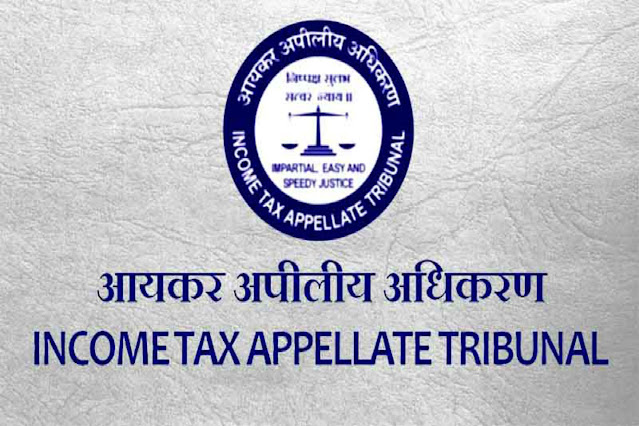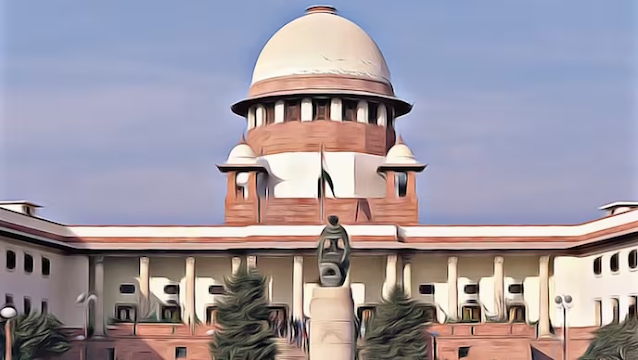Dhirubhai Naranbhai Patel, J.@mdashThis Letters Patent Appeal has been preferred against the judgment and order dated 6th January, 2014, passed by the learned Single Judge in W.P.(S) No. 1295 of 2013, whereby and whereunder petition preferred by this appellant was dismissed and the punishment of deduction of 10% of the pension inflicted upon this appellant by the government has been upheld by the learned Single Judge. Being aggrieved and feeling dissatisfied by the said judgment and order of the learned Single Judge, original petitioner has preferred this Letters Patent Appeal.
2. Counsel for the appellant (original petitioner) submitted that no detailed reasoning has been given by the disciplinary authority while imposing the punishment and said order is cryptic in nature. It is further submitted by counsel for the appellant that essential ingredients of Rule 43 (b) of the Jharkhand Pension rules, 2000 are not present and hence Rule 43 (b) of the Jharkhand Pension Rules cannot be invoked in the facts of the present case and therefore, the State cannot deduct 10% of the pension of this appellant. Counsel for the appellant has relied upon the decision rendered by Hon''ble the Supreme Court in the case of
3. Counsel for the respondents submitted that this appellant was issued a chargesheet by the Government. Thereafter, Enquiry Officer was appointed. Adequate opportunity of being heard was given to the Appellant-Delinquent and the Enquiry Officer has given a report and all the charges levelled against him were proved except Charge No. 2(iii). Report of the Enquiry Officer was presented before the Disciplinary Authority. Second show cause notice was also issued before imposing the punishment. Again adequate opportunity of being heard was given to the appellant (original petitioner) and thereafter, disciplinary authority has passed an order of deduction of 10% of the pension against the appellant who had retired by that time. The charges against this appellant including the charge of non-payment of wages to the workers under MNREGA scheme were very grave. The amount in question was of about Rs. 10 lacs and to be paid to the workers through their bank accounts or post office accounts, but, Instead of doing so, money was alleged to have been paid by cash. There were several other misconducts committed by this appellant, which have been proved. On perusal of the order of the disciplinary authority dated 1st November, 2012 (Annexure-11), it can not be said that there is non application of mind on the part of the disciplinary authority. All the essential ingredients of Rule 43(b) of Jharkhand Pension Rules, 2000 are found present. This aspect of the matter have been properly appreciated by the learned Single Judge and hence the present appeal may not be entertained by this court. It is also submitted by counsel for the respondent State that ratio decidendi propounded by the Hon''ble Supreme Court in the reported decision cited by the petitioner is not applicable looking to the facts of the present case and hence this Letters Patent Appeal may not be entertained.
Reasons:
4. Having heard both sides and looking to the facts and circumstances of the case, we see no reason to entertain this Letters Patent Appeal mainly for the following facts and reasons.:
"(I) This appellant is the original petitioner, who had preferred W.P(S) No. 1295 of 2013 against the order passed by the respondent State authorities for deduction of 10% of the pension in the departmental proceeding. The appellant was posted as a Block Development Officer in the State of Jharkhand. The period of misconduct is from 8th January, 2008 to 29th April, 2008. There are several misconducts alleged against this appellant and therefore, chargesheet was issued on 7th March, 2011 (Annexure 3 to the Letters Patent Appeal). If the charges are summarized, the main charge is with respect to misuse of funds more than 10 lakhs under MNREGA scheme. The payment was to be made in the Bank accounts or post office accounts of the workers, but, this appellant had not made the payment and it was alleged that he made the payment in cash and there was no evidence about job cards etc. of the workers. Thus, there is a direct allegation of misappropriation of this amount of 10 lakhs, which is Charge No. 2(ii). Similarly, there is one more serious charge against this appellant, i.e. Charge No. 2(v). This charge is with respect to Rs. 6,18,000/-, which was to be paid for construction of check dams to the workers through their bank accounts. This amount was also not paid to the workers through their bank accounts or post office accounts and it was alleged to have been paid by cash for which there was no evidence of job cards of the workers at all. Thus, there is also a charge of misappropriation of Rs. 6,18,000/- over and above other charges. Enquiry Officer was appointed by the Government. Adequate opportunity of being heard was given to the appellant delinquent. T he Enquiry Officer gave his report dated 17th July, 2012 (Annexure 5 to the memo of this letters patent appeal). All the charges levelled against this appellant have been proved except Charge No. 2(iii). Thus, aforesaid two major charges, i.e. Charge No. 2(ii) and 2(v) have been held as proved.
(II) Before taking disciplinary action again opportunity of being heard was given to this appellant. Report of the Enquiry Officer was placed before the disciplinary authority and ultimately disciplinary authority passed an order dated 1 s t November, 2012 (Annexure 11 to the memo of this letters patent appeal) vide which disciplinary authority imposed punishment of deduction of 10 % of the pension of the appellant because he had already retired by that time. Thus, there is no procedural lapse on the part of the respondents in holding the departmental proceeding. Adequate opportunity of being heard was given to the delinquent appellant. Second show-cause was also given before imposing the punishment.
(III) Much has been argued out by the counsel for the appellant about the manner in which the disciplinary authority has written the order in question. None of the contentions raised by the counsel for the appellant about manner of writing judgment by the disciplinary authority is accepted by this court mainly for the reason that disciplinary authority may not belong to legal profession and for that reason he may not be acquainted with the legal terminologies. It will suffice if charges are proved, report of the Inquiry officer is placed before the disciplinary authority, adequate opportunity of being heard is given on second occasion also and then order is passed. In the present case, looking to the order passed by the disciplinary authority dated 1st November, 2012, apparently, there is full application of mind by disciplinary authority. There is no need of writing a detailed judgment by the disciplinary authority as expected by the counsel for the appellant because there will be no end of such expectation even if reasons running into 10 pages are given. It appears that much lenient view has been taken by the disciplinary authority in imposing the quantum of punishment. Both the aforesaid charges, which are very serious in nature, have been proved including the other charges. Workers of MNREGA scheme have not received their payments. Amount with respect to construction of check dam was also not paid to the workers for the work done by them. This type of illegality is a grave misconduct. The delinquent could have been dismissed from the service even, but as he has retired by the time departmental proceeding concluded, 10% of his pension is forfeited by the State.
(IV) Once there is no procedural defect in holding the disciplinary proceedings, the question that remains before this court about the quantum or adequacy of the punishment. Looking to the nature of misconducts committed by this appellant, which are proved as per report of the Enquiry Officer dated 17th July, 2012 (Annexure 5 to the memo of the Letters Patent Appeal) deduction of 10% pension can not be said a grossly disproportionate punishment. On the contrary, in our view, much lenient view has been taken by the disciplinary authority, as the employee has retired, but, suffice it to say that quantum of punishment with respect to the misconduct is not shockingly disproportionate. Grave misconducts have been committed by the appellant for which the punishment imposed is not unreasonably excessive nor it can be said to be grossly disproportionate. No illegality has been committed by the respondent State either in holding a disciplinary Proceeding or in imposing the punishment.
(V) Counsel for the appellant has submitted that the essential ingredients of Rule 43(b) of Jharkhand Pension Rules are absent.
This contention is also not accepted by this court mainly for the reason that looking to the charges proved against this appellant and the order passed by the disciplinary authority, it appears that all ingredients of Section 43(b) of the Jharkhand Pension Rules are present in this case. The State has all power, jurisdiction and authority to deduct the pension if the misconduct, as stated herein above, which are gross in nature, are proved. The disciplinary authority might not have mentioned that there is ''gross'' misconduct committed by this appellant, i.e. the word ''gross'' may be missing in the order of punishment, but that does not mean that this appellant has not committed a gross misconduct. As stated herein above, though the disciplinary authority does not belong to legal profession and not conversant with legal terminologies, but, no benefit of simple language used by the disciplinary authority even can be given to this delinquent employee looking to the nature of misconduct.
(VI) Aforesaid facts of present case makes it different from the facts of the decisions cited by the counsel for the appellant and hence the ratio laid down by Hon''ble the Supreme Court in the decision cited herein above by counsel for the appellant is not applicable in the facts of the present case and therefore, we see no reason to take any other view except what is taken by the learned Single Judge vide order dated 6th January, 2014 in W.P.(S) No. 1295 of 2013."
5. As a cumulative effect of the aforesaid facts and reasons, we, therefore, uphold the decision of the learned Single Judge.
6. There is no substance in this Letters Patent Appeal, which is, hereby, dismissed.

